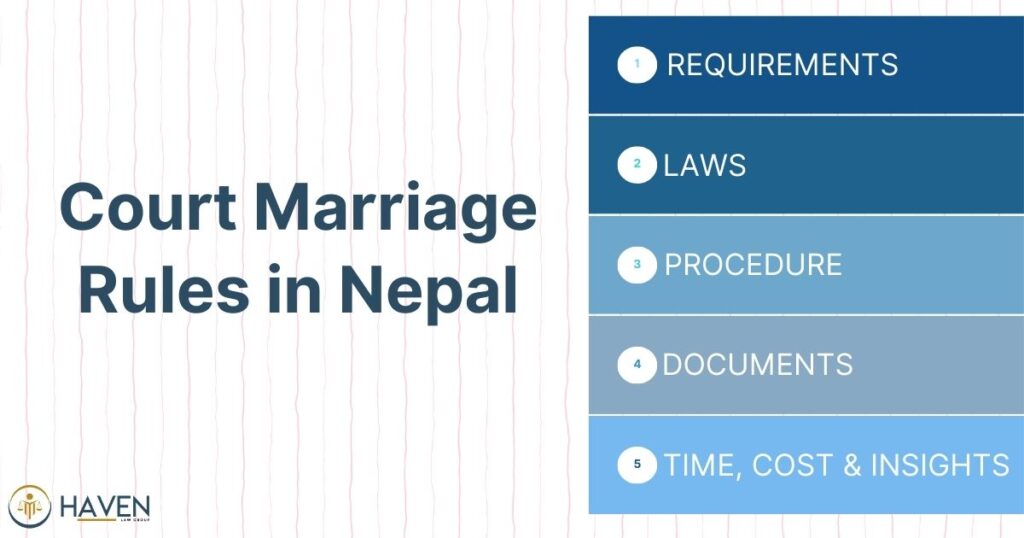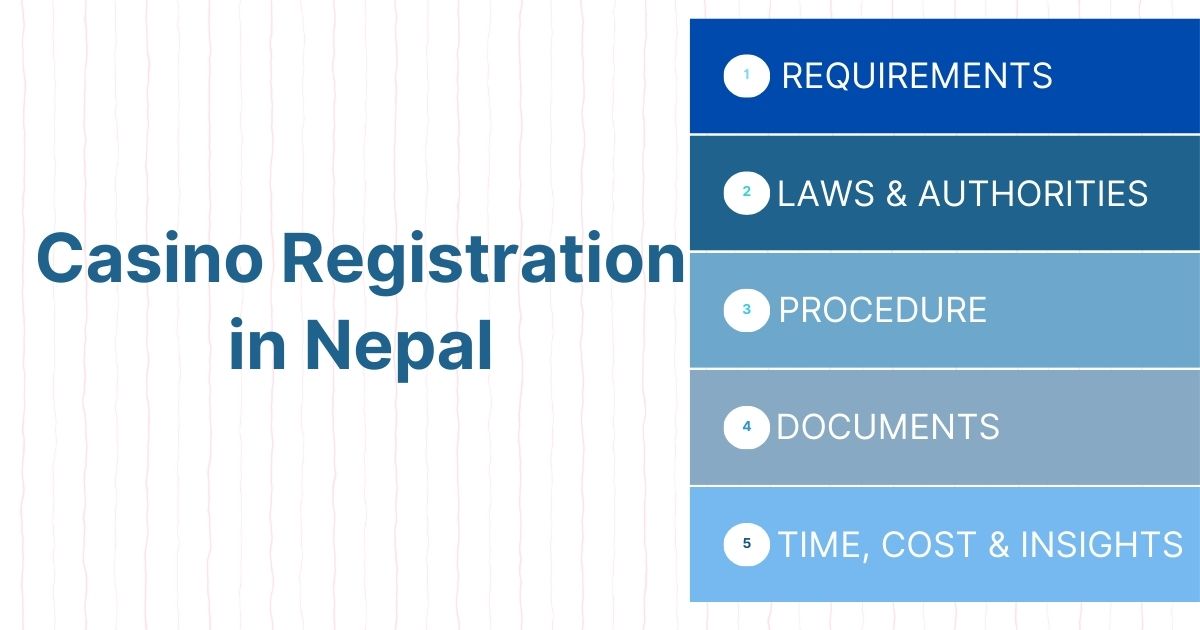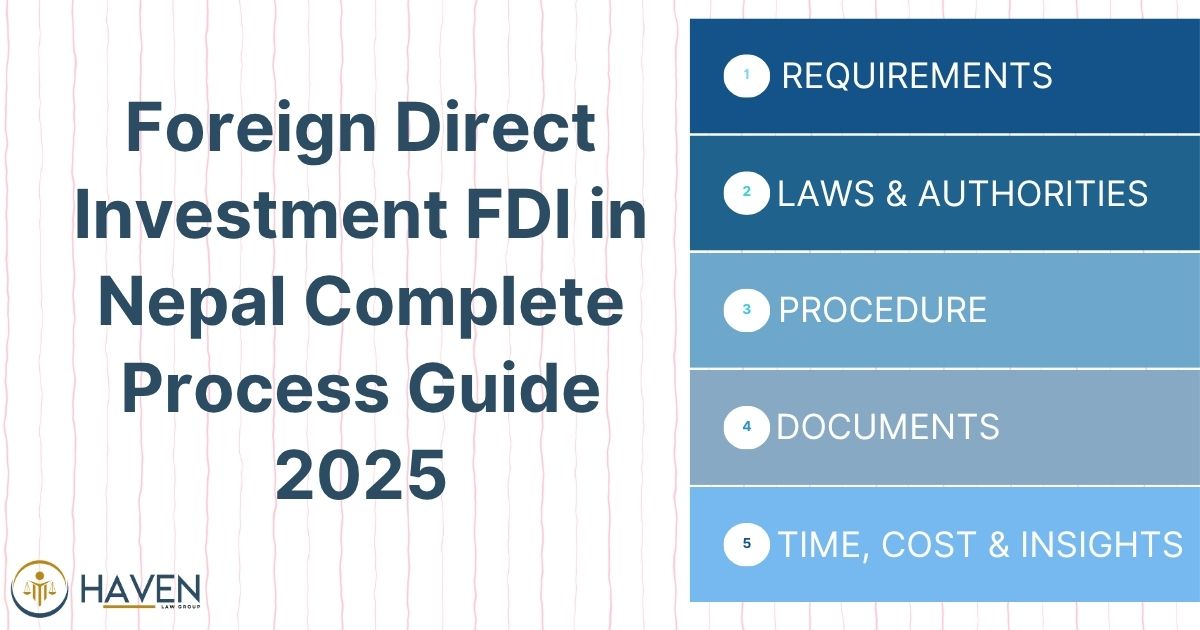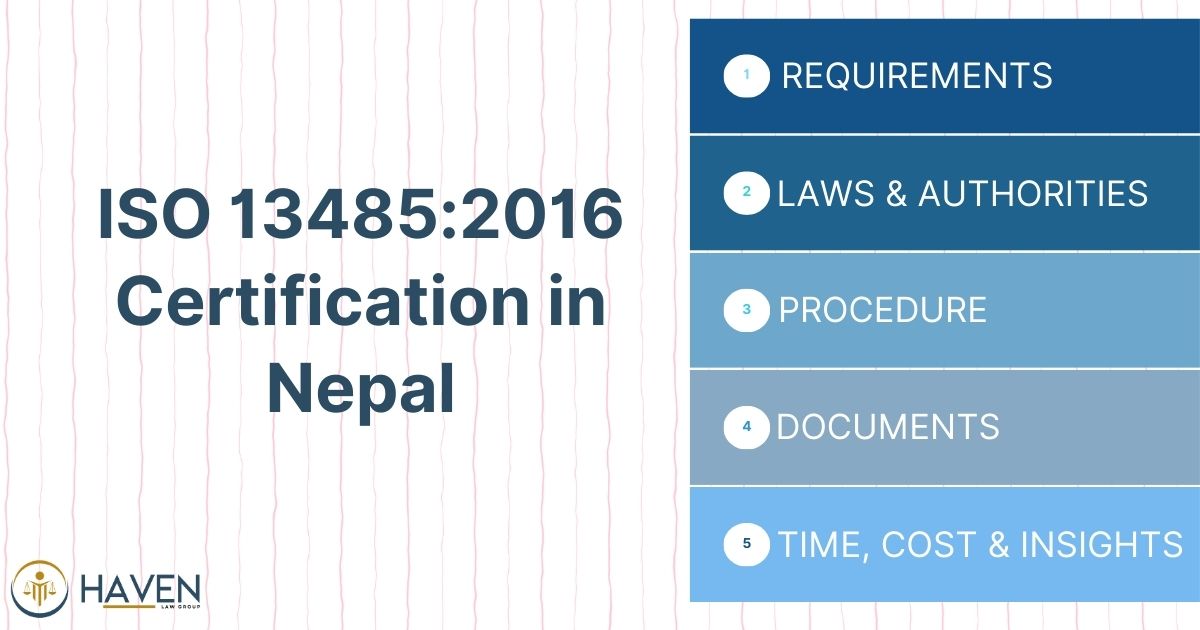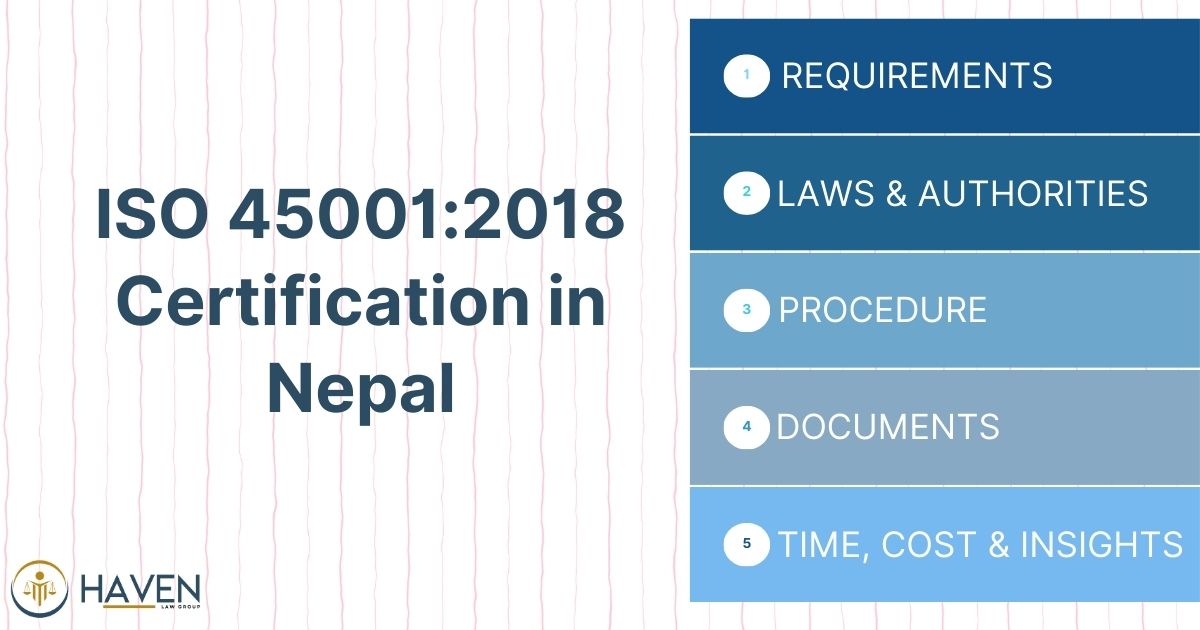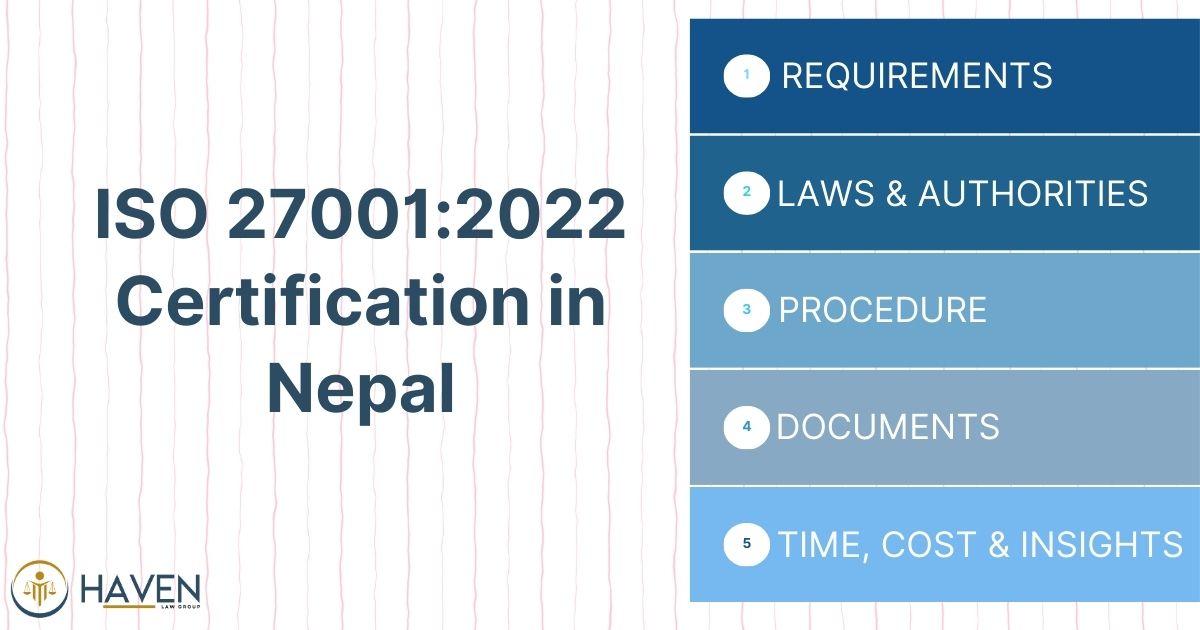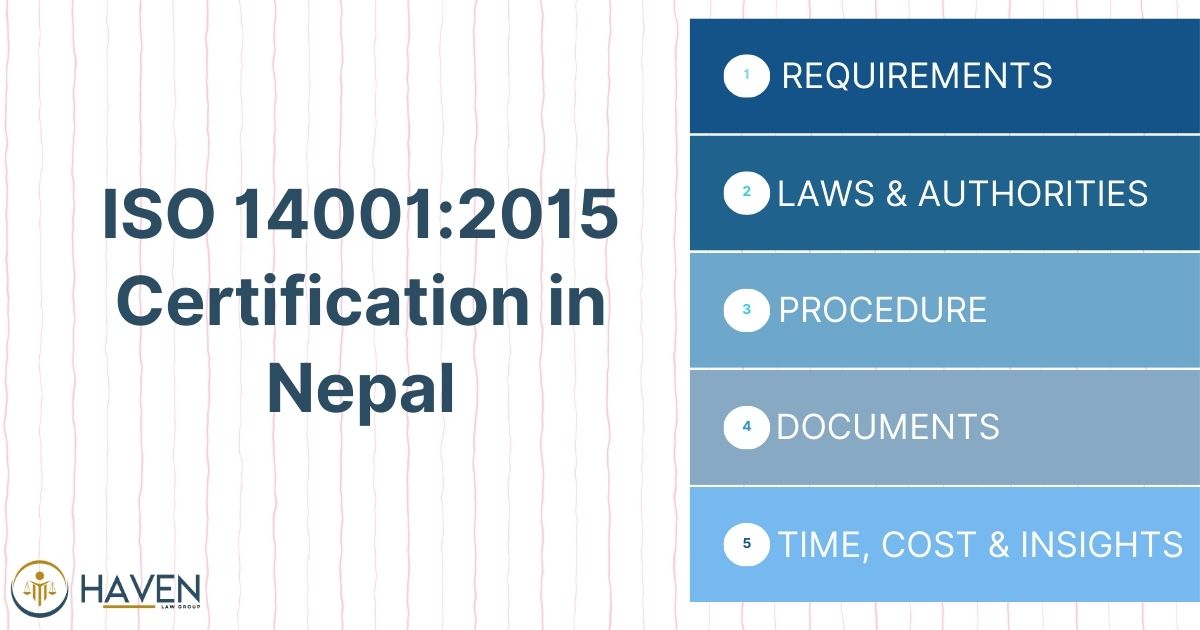What are the rules for court marriage in Nepal?
Court marriage in Nepal is governed by the Civil Code 2074 (2017). The rules for court marriage in Nepal require both parties to be present before a designated government official, typically at a District Court or local government office. The couple must submit an application for marriage registration along with necessary documents.
Both individuals must freely consent to the marriage without any coercion. The marriage must be solemnized in the presence of at least two witnesses. After the ceremony, the couple receives a marriage certificate, which serves as legal proof of their union. Court marriages in Nepal are recognized as legally binding and provide equal rights to both spouses under Nepali law.
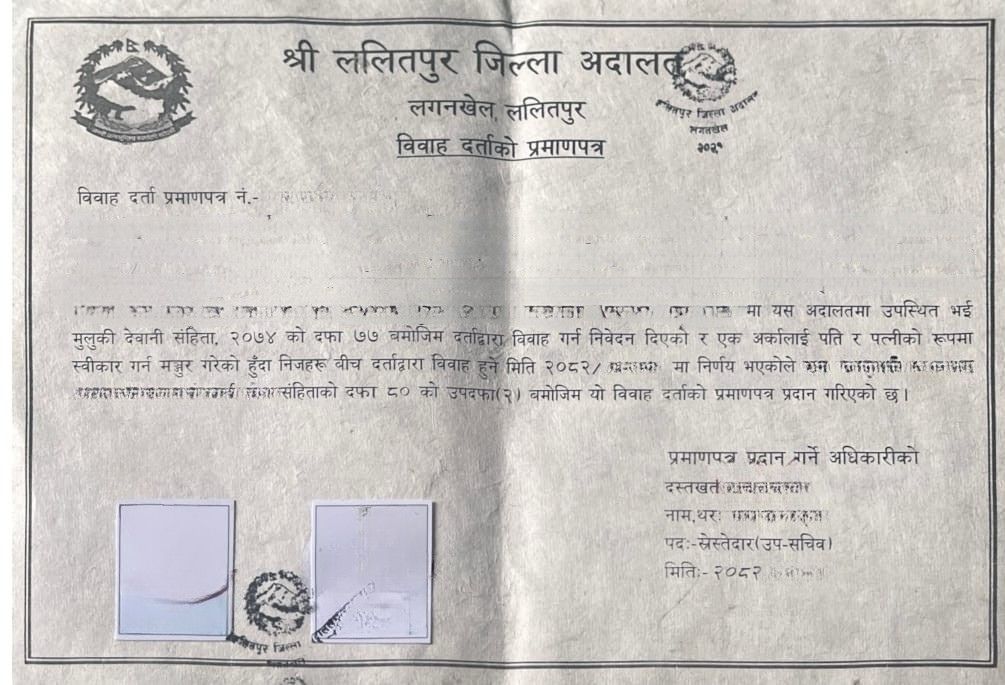
What is the age requirement for court marriage?
The age requirement for court marriage in Nepal is stipulated in the Civil Code 2074 (2017). According to the law, both the bride and groom must be at least 20 years old to enter into a court marriage. This age requirement applies equally to men and women, ensuring gender equality in marriage laws.
If either party is below 20 years of age, the marriage cannot be legally registered through the court system. The age requirement aims to prevent child marriages and ensure that individuals are mature enough to make informed decisions about their marital status. Violating this age requirement can result in legal consequences and the marriage being declared void.
Are witnesses required for court marriage?
Yes, witnesses are required for court marriage in Nepal. The Civil Code 2074 (2017) mandates the presence of at least two witnesses during the court marriage ceremony. These witnesses must be adults of sound mind and should not have any vested interest in the marriage. The witnesses play a crucial role in verifying the identities of the couple and attesting to the voluntary nature of the marriage.
They are required to sign the marriage registration documents, confirming their presence and the legitimacy of the ceremony. The inclusion of witnesses adds an extra layer of legal validity to the court marriage process and helps prevent fraudulent marriages.
Can inter-caste couples marry in court?
Inter-caste marriages are legally permitted in Nepal, and couples from different castes can marry in court. The Constitution of Nepal 2072 (2015) guarantees the right to equality and prohibits discrimination based on caste. The Civil Code 2074 (2017) further reinforces this by allowing marriages between individuals regardless of their caste backgrounds.
Inter-caste couples can follow the same court marriage rules and procedures as any other couple. This legal provision promotes social inclusion and aims to reduce caste-based discrimination in Nepali society. However, it’s important to note that while legally protected, inter-caste marriages may still face social challenges in some communities due to deeply rooted cultural norms.
Is parental consent mandatory for court marriage?
Parental consent is not mandatory for court marriage in Nepal if both parties are of legal age. According to the Civil Code 2074 (2017), individuals who are 20 years or older have the right to marry without obtaining parental consent. This provision respects the autonomy of adults to make their own decisions regarding marriage. However, if either party is below 20 years of age, parental consent becomes necessary.
While not legally required for adults, some couples may choose to seek parental blessings for cultural or personal reasons. It’s important to note that the absence of parental consent does not affect the legal validity of a court marriage between consenting adults.
What documents are needed to follow the rules?
To comply with court marriage rules in Nepal, the following documents are typically required:
- Citizenship certificates of both bride and groom
- Birth certificates or proof of age
- Passport-sized photographs of both parties
- Divorce decree (if previously married)
- Death certificate of previous spouse (if widowed)
- No Objection Certificate from the embassy (for foreigners)
- Valid visa and passport (for foreigners)
- Marriage application form
- Witness identification documents
- Medical certificate (if required by local authorities)
These documents help verify the identities, eligibility, and legal status of the couple seeking marriage. It’s advisable to check with the specific court or local government office for any additional requirements, as document needs may vary slightly by district.
Are there penalties for false information?
Yes, there are penalties for providing false information during the court marriage process in Nepal. The Civil Code 2074 (2017) and other relevant laws impose strict consequences for fraudulent activities related to marriage registration. Providing false information or forged documents can lead to criminal charges, including perjury and fraud. Penalties may include fines, imprisonment, or both, depending on the severity of the offense.
Additionally, marriages obtained through false information can be declared null and void by the court. The legal system aims to maintain the integrity of the marriage institution and deter individuals from misusing the court marriage process. It’s crucial for couples to provide accurate and truthful information to avoid legal repercussions.
Can foreigners follow the same rules?
Foreigners can generally follow the same court marriage rules in Nepal, with some additional requirements. The Civil Code 2074 (2017) allows foreign nationals to marry in Nepal, provided they comply with Nepali laws and regulations. Foreigners must present valid passports, visas, and a No Objection Certificate from their respective embassies.
They may also need to provide documents proving their single status or ability to marry under their home country’s laws. The marriage must be registered with the local authorities, and the foreign spouse may need to apply for a marriage visa if planning to stay in Nepal. While the core process remains similar, foreigners should be prepared for potential additional documentation and longer processing times.
Are court marriage rules strict in Nepal?
Court marriage rules in Nepal are relatively strict and well-defined. The Civil Code 2074 (2017) and related regulations provide a clear framework for court marriages, ensuring legal compliance and protecting individuals’ rights. The rules cover various aspects, including age requirements, documentation, witness presence, and registration procedures. Strict adherence to these rules is necessary to ensure the validity of the marriage.
The legal system aims to prevent fraudulent marriages, underage unions, and forced marriages through these regulations. While the rules may seem stringent, they are designed to protect the interests of both parties and maintain the integrity of the marriage institution in Nepal.
What happens if rules are violated?
Violating court marriage rules in Nepal can have serious legal consequences. If age requirements are not met, the marriage can be declared void ab initio (from the beginning). Providing false information or forged documents can result in criminal charges, including fines and imprisonment.
Marriages conducted without proper registration may not be recognized legally, potentially affecting property rights and other legal matters. In cases of forced marriages or marriages under duress, the affected party can seek annulment. Violations related to witness requirements or procedural errors may lead to the marriage being declared invalid. The severity of consequences depends on the nature and extent of the violation, with courts having the authority to impose appropriate penalties as per Nepali law.
Can marriage rules differ by district?
While the fundamental court marriage rules in Nepal are set by national laws, particularly the Civil Code 2074 (2017), there can be some variations in implementation across different districts. Local government bodies may have specific procedural requirements or additional documentation needs based on regional practices. For instance, some districts might require medical certificates, while others may not.
The availability of marriage registration services and processing times can also vary by district. However, core elements such as age requirements, witness presence, and basic documentation needs remain consistent nationwide. Couples planning a court marriage should consult with the local authorities in their specific district to ensure compliance with any district-specific procedures or requirements.
Do court marriage rules allow annulment?
Yes, court marriage rules in Nepal allow for annulment under certain circumstances. The Civil Code 2074 (2017) provides grounds for annulment, which is a legal procedure to declare a marriage null and void. Reasons for annulment may include:
- One party was underage at the time of marriage
- Lack of consent or marriage under duress
- Fraud or misrepresentation of crucial facts
- Mental incapacity of either party
- Bigamy (one party already married)
- Incestuous relationships
The process for annulment involves filing a petition in court and providing evidence to support the claim. If granted, an annulment legally erases the marriage as if it never existed. It’s important to note that annulment differs from divorce, as it declares the marriage invalid from the start rather than ending a valid marriage.
FAQs
Are fees regulated by law?
Yes, fees for court marriage in Nepal are regulated by law. The government sets standard fees for marriage registration and related services. These fees are typically nominal and are intended to cover administrative costs. The exact amount can vary slightly by district or municipality but remains within a regulated range. Additional costs may apply for services like document verification or translation.
It’s important to obtain official receipts for all payments made during the court marriage process. Couples should be cautious of any requests for excessive fees, as this could indicate potential fraud. For the most current fee information, it’s advisable to check with the local court or municipality office where the marriage will be registered.
Can rules change often?
Court marriage rules in Nepal do not change frequently, but they can be subject to amendments as part of broader legal reforms. The Civil Code 2074 (2017) provides the current framework for marriage laws, including court marriages. While the core principles remain stable, specific regulations or procedural aspects may be updated to address societal changes or improve administrative efficiency.
Any significant changes to marriage laws typically go through a legislative process and are publicly announced. It’s advisable for couples planning a court marriage to verify the current rules with local authorities or legal professionals to ensure compliance with the most up-to-date regulations. Major changes to marriage laws are rare but can occur as part of larger legal or social reforms in the country.
Is registration mandatory everywhere?
Yes, marriage registration is mandatory throughout Nepal for all types of marriages, including court marriages. The Civil Code 2074 (2017) requires all marriages to be registered with the appropriate government authorities. This applies uniformly across all districts and municipalities in the country. Registration serves as official recognition of the marriage and provides legal protection to both spouses.
It is essential for various legal and administrative purposes, including property rights, inheritance, and social benefits. Failure to register a marriage can lead to legal complications in the future. The process and specific office for registration may vary slightly by location, but the requirement itself is universal across Nepal.
Are photos required for marriage?
Yes, photographs are typically required for court marriage in Nepal. Most local authorities and courts ask for recent passport-sized photographs of both the bride and groom. These photos are used for identification purposes and are often attached to the marriage registration documents. The exact number of photographs required can vary, but it’s common to need 2-4 photos per person.
These photographs should be clear, recent, and meet standard identification photo criteria. Some offices may also require a joint photograph of the couple. It’s advisable to check with the specific court or local government office where the marriage will be registered for their exact photo requirements, as these can sometimes vary slightly by district.
What is the penalty for fraud?
The penalty for fraud in court marriages in Nepal can be severe. Under the Civil Code 2074 (2017) and related criminal laws, providing false information or forged documents during the marriage process is considered a serious offense. Penalties can include:
- Fines: Substantial monetary penalties based on the nature of the fraud
- Imprisonment: Jail terms ranging from months to several years, depending on the severity
- Nullification of Marriage: The fraudulent marriage can be declared null and void
- Criminal Record: Conviction results in a criminal record affecting future opportunities
- Deportation: For foreigners involved in marriage fraud
- Civil Liabilities: Potential lawsuits from affected parties
The exact penalty depends on the specific circumstances and the court’s judgment. These strict penalties aim to deter fraudulent marriages and maintain the integrity of the legal marriage system in Nepal.
What is a court marriage in Nepal?
Court marriage in Nepal is a legal union solemnized by a government official at a district court, without religious ceremonies. It provides official recognition of marriage under civil law.
Who is eligible for court marriage in Nepal?
Nepali citizens aged 20 or above can have a court marriage. Foreigners must be at least 18. Both parties must be unmarried, of sound mind, and not closely related.
What documents are required for court marriage between two Nepali citizens?
Required documents include citizenship certificates, birth certificates, passport-sized photos, and residence proof for both parties. A marriage application form must be completed and notarized.
What additional documents are required if one party is a foreigner?
Foreign parties need a valid passport, visa, and police clearance from their home country. A sworn affidavit confirming single status is also required.
How long does the court marriage process take?
The court marriage process typically takes 2-3 weeks from application submission to certificate issuance, depending on document verification and court schedules.
Is court marriage in Nepal recognized internationally?
Yes, court marriages performed in Nepal are generally recognized internationally. However, some countries may require additional authentication or registration procedures.
What are the benefits of court marriage in Nepal?
Court marriage offers legal protection, simplifies property rights, eases visa processes for international couples, and provides official proof of marital status for various purposes.

